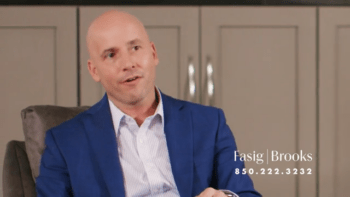
Personal injury clients, the relationship you build with your attorney makes a huge difference in the ultimate outcome of your case. Often, by asking your attorney the right questions, you can spark a conversation that will help maximize the value of your case. By maintaining communication with your attorney, you will also increase the chances that your case gets resolved as quickly as possible. Remember, your attorney probably has a lot of cases. You only have one. Please don’t feel like you are bothering your attorney if you call with questions. Questions from our clients actually help us develop strategies and stay focused on getting your case resolved in the most efficient manner possible. Here are the top ten questions you can ask your attorney to help make sure you get the full value of your case:
- What is your strategy for getting the full value of the case?
- What is your strategy for getting the case resolved as quickly as possible?
- How are you going to prove that the defendant is at fault?
- How are you going to prove the value of my future medical treatment?
- How are you going to prove the extent of my pain and suffering?
- Have you done jury verdict research on my case?
- What factors go into the valuation of my case?
- What facts of my case are you worried about? And how can we overcome those worries?
- Are there any other diagnostic studies or treatment modalities I should explore?
- How are we going to decide whether to settle my case or go to court?
What is your strategy for getting the full value of the case?
The first question is about strategy. A lawyer should have a strategy for maximizing the case value. Most lawyers submit demand letters before filing a lawsuit, but that’s not always the best game plan. The strategy should be specifically tailored to your particular situation. If your lawyer says he or she is going to submit a demand letter, ask for details about what will go into the demand letter. Good demand letters are supplemented by supporting evidence. The supporting evidence is what matters. The words in the demand letter are important, but far less important than the supporting evidence. Ask your lawyer what kind of evidence they intend to submit with the demand letter. We’ll get more into that later.
What is your strategy for getting the case resolved as quickly as possible?
As stated before, a demand letter is not always the best solution. In higher value cases and complex liability cases, the chances of getting the case resolved quickly for full value with a demand letter are minimal, and I recommend filing a lawsuit sooner rather than later. Attempting a settlement demand letter in those situations usually just results in a delay of the case. Once the lawsuit is filed, served, and answered by the defense, your lawyer can submit a motion to the court to set the case for trial. In response to that motion, most judges will require the parties to go to a mediation within six months. About 75% of the cases that go to mediation get settled at the mediation. Our numbers clearly show higher average settlement values for cases we litigate than for cases we settle with a pre-suit demand letter. Make sure your lawyer at least considers filing suit without sending a settlement demand.
How are you going to prove that the defendant is at fault?
Some personal injury lawyers don’t like cases where there is questionable liability. I think that’s a mistake. When the defense denies liability but you can prove they are wrong, the case value increases. That’ why it’s important to lock down the evidence for liability as soon as possible. I always like to present pictures of the vehicles involved, pictures of the accident scene, the police report, and witness statements when available. Often, we hire accident reconstructionists, slip and fall experts, or other professionals to give expert opinions to nail down liability. Sometimes the only way you can get the evidence you need is by filing a lawsuit and getting it during discovery. I’ve had cases where I had no evidence to support my client’s liability argument until I filed the lawsuit and got the video tape or other evidence that was only available from the defendant. Some personal injury attorneys won’t do that, but I think that’s a mistake, because the defendant is often the one who has all the evidence and will not give it to you unless a court requires it.
How are you going to prove the value of my future medical treatment?
This is an issue that is commonly ignored or glossed over by personal injury attorneys, but in my experience it can be one of the most important aspects of the case. I had a case one time where the defense offered $40,000 to settle the case, but my client was getting pain management injections and needed them for the rest of her life, so I demanded the full $100,000 policy limits. The insurance company rejected my demand, and we went to a jury trial. The jury awarded my client not only the $50,000 she had in past medical bills, but $96,000 in future medical bills, bringing the verdict to almost $150,000. Every demand letter, and every mediation should include a doctor’s opinion regarding the client’s future medical needs and the estimated cost of those needs over the client’s lifetime. Boiler plate language in the doctor’s final report is not good enough. It needs to be specifically tailored to that client’s circumstances.
How are you going to prove the extent of my pain and suffering?
Insurance adjusters evaluate cases based upon evidence. If you are unable to do things you used to do because of your injury, or if you have to modify your activities because of your injury, that’s important information for the adjuster to know. Ask your lawyer about the best way to document your injuries, in addition to medical records. Sometimes, I take witness statements of people who know my clients very well. Other times, I recommend my client write in a journal every day. Other times, I recommend my client take video of him or herself doing various activities. It’s important to have a discussion with your personal injury attorney about the best way to prove your pain and suffering with evidence that could persuade the adjuster.
Have you done jury verdict research on my case?
Personal injury lawyers should not just come up with a number to determine the value of your case. They should research the case and look for comparable cases to see what ranges of verdicts have come out. Evaluating a case is a lot like evaluating a house. We use comparables. We look for similar facts in the same venue with the similar injuries, and we see what kind of results came out of jury trials. My firm has already done jury verdict research on numerous types of cases, so I can often refer my client to that research, some of which is on our Website. In many instances, we do the research specifically tailored to our clients’ circumstances. If you ask your lawyer to provide you with that research, you will ensure that the lawyer has done it and has taken time to really consider the full value of your case.
What factors go into the valuation of my case?
Personal injury attorneys know the factors that go into a case value, but it’s important for the client to know as well, so the client can participate in process of building the evidence in the case. Every case is different, but the main factors that go into a case evaluation are liability, damages, and causation. Your personal injury attorney has to prove first that the defendant was negligent. The ease in which that can be proven is a big factor in determining the value of the case. If the defendant has evidence that you were also at fault, that’s another factor to consider. Secondly, the attorney has to prove the extent of your injuries, usually with doctors opinions and before/after witnesses, and possibly expert witnesses. The degree to which your attorney can prove the extent of your injuries is another factor. The last factor is causation. Your personal injury attorney must prove that the defendant’s negligence caused your injuries. If you had pre-existing injuries that were aggravated by the defendant’s negligence, that is a factor as well. There are a million other factors, so it’s best to have a talk with your attorney about which factors most affect your case.
What facts of my case are you worried about? And what can we do about it?
Every case has warts. I’ve been in this business since 1992, and I’ve yet to see a car accident, truck accident, slip and fall, or other personal injury case that didn’t have some problems. It’s extremely important for your lawyer to identify those problems and take measures to overcome them. For instance, I tried a case once where my client hurt her back. The defense had a picture of her after the incident running in a 5K race, lifting her arms as she crossed the finish line. The defense thought that picture sealed the deal and that we were going to lose the case. We countered that evidence with the official time record for the race, which showed the pace in which she “ran” the race was a brisk walk. We also brought in testimony from her husband, saying the entire evening after the race she was bedridden. We won the case. Ask your lawyer how you expect the insurance company or corporation to defend the case, and find out what your lawyer’s strategy is for dealing with those defenses.
Are there any other diagnostic studies or treatment modalities I should explore?
Personal injury attorneys win cases by presenting medical evidence. If you are having symptoms that have not been properly documented, you won’t get the full value of the case. Proper documentation for most injuries means objective evidence, such as x-rays, MRI studies, nerve conduction studies, diffuse tensor imaging, CT scans, and so on. Objective evidence of injury makes a huge difference in the value of the case. Likewise, the type of treatment you get makes a big difference in case value. Almost all personal injury clients either go through physical therapy or chiropractic care, but the clients who ONLY do conservative treatment have the least valuable cases. Cases begin to increase in value when the treatment consists of injections, nerve ablation, surgery, or other invasive procedures. Insurance companies and jurors are impressed with injuries which require invasive procedures. Actions speak louder than words. If you are in so much pain you are willing to undergo surgery or injections, you have a serious injury. Injections typically produce less case value than surgery, but not always. A good lawyer will never try to persuade you to get procedures you don’t need. But if you are in serious pain and it’s affecting your enjoyment of life, talk to your lawyer about the possibility of pain management injections or getting a surgical opinion.
How are we going to decide whether to settle my case or go to court?
Your personal injury attorney should be able to explain to you his or her thought processes in determining whether a case should be litigated or settled. Obviously, it comes down to whether the insurance company is offering a fair settlement. However, this decision can often be made before any settlement offer is on the table. I like to test the waters with insuruance companies to see how amenable they are to negotiation. If we have a complicated liability situation, where the defendant is denying fault, I like to present my evidence to the carrier and get the adjuster on the phone for a heart to heart. If the adjuster continues to deny liability, I go ahead and file the lawsuit. They need to know we mean business. Likewise, I ask the adjuster if he or she is going to consider future medical treatment in the evaluation. If it’s a case that’s going to require significant future medical treatment and the adjuster says, “We don’t consider future meds,” I file the lawsuit. There are a lot of other factors, so it’s worth a discussion with your attorney to see if your attorney has considered getting the lawsuit filed before sending a settlement demand. Also, when your attorney is negotiating your case with the adjuster, find out what the attorney’s recommended bottom line is. It’s important to draw the line somewhere, so you and your attorney should have that discussion before the negotiations begin.
If you ask your attorney these questions, you will be more likely to get the results you want. As always, if you are a Fasig Brooks client, please feel free to call your attorney at any time. If for any reason you can’t reach your attorney, please contact me, Jimmy Fasig, the managing partner on my cell at (850) 933-3111. It’s my pleasure to serve you.




